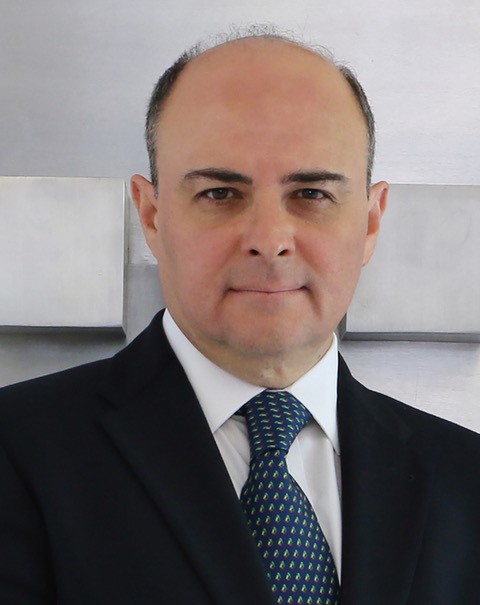FEBRUARY 6, 2020 — Sergio Alcocer , a member of the National Academy of Engineering, has joined the faculty of the UTSA College of Engineering as a professor of civil engineering. He is a fellow of the American Concrete Institute, former president of the of the Academy of Engineering of Mexico, and was elected to the National Academy of Engineering in 2017 for his work on enhancing seismic safety of buildings in developing countries through improved design standards and government policies.
As a distinguished researcher, Alcocer will collaborate with UTSA faculty in grant development and provide public and institutional lectures at UTSA for students, faculty, and the community. In addition, Alcocer will serve as a senior liaison to Mexican Programs, working with Vice Provost of Global Initiatives Lisa Montoya to advance UTSA’s commitment to internalization, multiculturalism and knowledge enterprises that are of mutual interest to both UTSA and Mexican institutions.
“Dr. Alcocer brings substantial foreign policy and civil engineering expertise to UTSA,” said JoAnn Browning , dean of the College of Engineering. “In addition to working with Global Initiatives to increase the number of cooperative ventures—including study abroad, joint degrees—that UTSA has with universities in Mexico, he will play a lead role in mentoring our engineering faculty for increasing their academic visibility and success.”
Alcocer earned his B.S degree in civil engineering from the Universidad Nacional Autónoma de México in 1986 and a Ph.D. in civil engineering from UT Austin in 1991. After completing his doctorate degree, he served as the head of the Structural Engineering and Geotechnical Area for the National Center for Disaster Prevention at UNAM from 1991 to 2000. Between 2000 and 2003 he was director of research for the center, followed by his promotion to become the director of the Institute of Engineering from 2003 to 2007.
He served as secretary general and provost of UNAM from 2007 to 2011, and as the vice president for innovation and development at UNAM in 2012. Between 2011 and 2012, Alcocer was appointed by the Mexican government as the undersecretary for energy planning and technology development within the Ministry of Energy. He again served as the undersecretary for North America in the Ministry of Foreign Affairs in the Mexican government from 2013 to 2015.
Throughout his distinguished career in academia and public service, Alcocer held the appointment as a research professor for UNAM from 1995 until accepting his new position at UTSA. He has received numerous awards, including the 2014 Award of Distinction from the Consortium for North American Higher Education Collaboration, the Distinguished Engineering Alumni Award from the Cockrell School of Engineering at UT Austin, the Charles S. Whitney Medal from ACI, and the Research Prize from the Mexican Academy of Sciences.
Alcocer was recruited to UTSA through the Accelerated Hiring of Nationally Recognized Faculty Program (NRP) a component of the Strategic Faculty Hiring Initiative launched in 2019. The NRP supports the hiring of additional nationally and internationally recognized, highly accomplished full-time, tenured faculty who will advance research excellence at UTSA through enhancing academic distinction and student success outlined in the President’s Vision and Strategic Plan for UTSA.
“We are using the NRP to bring distinctive faculty to UTSA, and we are very excited to welcome Sergio Alcocer as our third tenured faculty member who is a member of the National Academies of Science, Engineering or Medicine—a marker of faculty quality that contributes directly to the quality of the classroom experience of our students,” said Kimberly Andrews Espy , provost and senior vice president for academic affairs. “The relationship of our city and university to Mexico is an important one, and Dr. Alcocer brings an esteemed reputation and a tremendous network of collaborators to help UTSA further enhance our partnerships in Mexico.”
Also joining the college are Mario Flores and Karina Vielma .


